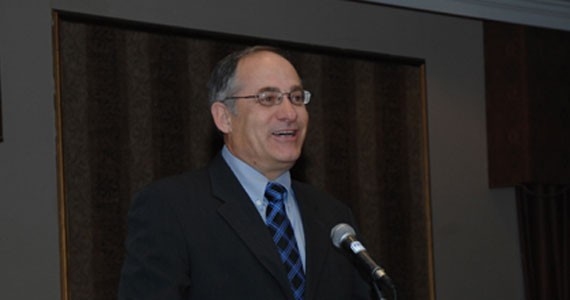But last month, Halifax mayor Peter Kelly told the CBC that he won't agree to the city buying about 400 hectares of privately owned land in the area, even though the land is designated in the HRM regional plan as wilderness park.
Kelly's comments have enraged Parent.
"It’s disappointing," says Parent. "It makes you wonder what these plans are worth, and no wonder people are skeptical about politicians. This 25-year regional plan, to my understanding, was discussed publicly on several occasions, it was well worked through with the [Halifax] council---and to just at the end throw it away and say, 'well, that’s just a plan, it doesn’t mean anything,' it is the height of political Machiavellianism. It’s just mind boggling."
Parent is a Progressive Conservative of the old Red Tory school. He is a Baptist preacher, and is well respected in environmental circles. Widely considered to be one of the main forces behind the celebrated Environmental Goals and Sustainable Prosperity Act, Parent was particularly aggressive on the wilderness designation part of the Act, which calls for 12 percent of the land area in the province to receive wilderness protection. He says that goal was foremost in his mind as he was dealing with Blue Mountain-Birch Cove Lakes.
"We moved forward there was two reasons," he explains.
"One was the HRM plan. I understand that it had been fully discussed, vetted and adopted in their regional development plan. And that included large chunks of park land, preserve land, conservation land, which would be just to the south of the land that we [at the province] would be able to preserve. When I looked at the map and listened to the discussions, it was clear that for the area to act as an ecological whole, that both sides needed to be protected. So, we went forward with protecting the northwest side, and in fact in a press release Peter Kelly was quoted, because he was ecstatic this was supporting the plan. So, that was the main reason we moved forward.
"The second reason," continues Parent, "was that I’d begun to talk about the 12 percent---perhaps naively, because I didn’t know we weren’t supposed to talk about protecting 12 percent. Once I had talked about it, then we put it in legislation and managed to get it through the house, it became clear that we had to move forward more aggressively because of the low amount of land that we had protected. One of the things that I always got thrown at me was, 'well, these protected wilderness areas are off in places that people don’t go to, you’re not allowing people to enjoy them, and you’re imposing city values on places like the Tobeatic where we want to run around in our ATVs,' right? To counter that in part, there was a splendid opportunity with the HRM plan and with the Blue Mountain area, to have a wilderness area close to a major urban centre. That was the second reason we went ahead."
Leaving the private land in the area open for development threatens the entire wilderness area, says Parent.
"[Blue Mountain-Birch Cove Lakes] has an ecological integrity, this chain of lakes that runs through it where wildlife can run from area to area," says Parent. "So yea, you degrade the land. You turn it into fancy park land, basically, for the benefit of those who can buy in that area. You run the risk of whether that section would actually add to the 12 percent or not. And that was always a fight I was having, because people were saying to me in my own cabinet, 'well, you know, anything that’s quasi-protected can qualify for the designation.' That’s not true---there’s very strict criteria that were adopted globally, when the global community said this is a goal that people should try to reach. If you look up the criteria, you run that risk with the section we designated as Blue Mountain- Birch Cove Lakes."
Asked if Kelly's backtracking on BMBCL speaks to the political power that the development industry has over Halifax council, Parent hesitated.
"It’d be hard for me to say definitively on that, since I don’t sit on council, but from the outside it sure appears so," he says. "I don’t understand it, frankly; I’m just baffled. Kudos to the Ecology Action Centre for raising the alarm, because most of us who worked on that thing just thought it was a done deal: we did our part, HRM would do their part, they’re moving forward, and the two would compliment each other.
"What happened between that plan and this current proposal, I don’t understand. It certainly would raise alarm bells in my mind if I were a councillor, or if I were a citizen of HRM---it does as a citizen of the province of Nova Scotia."

